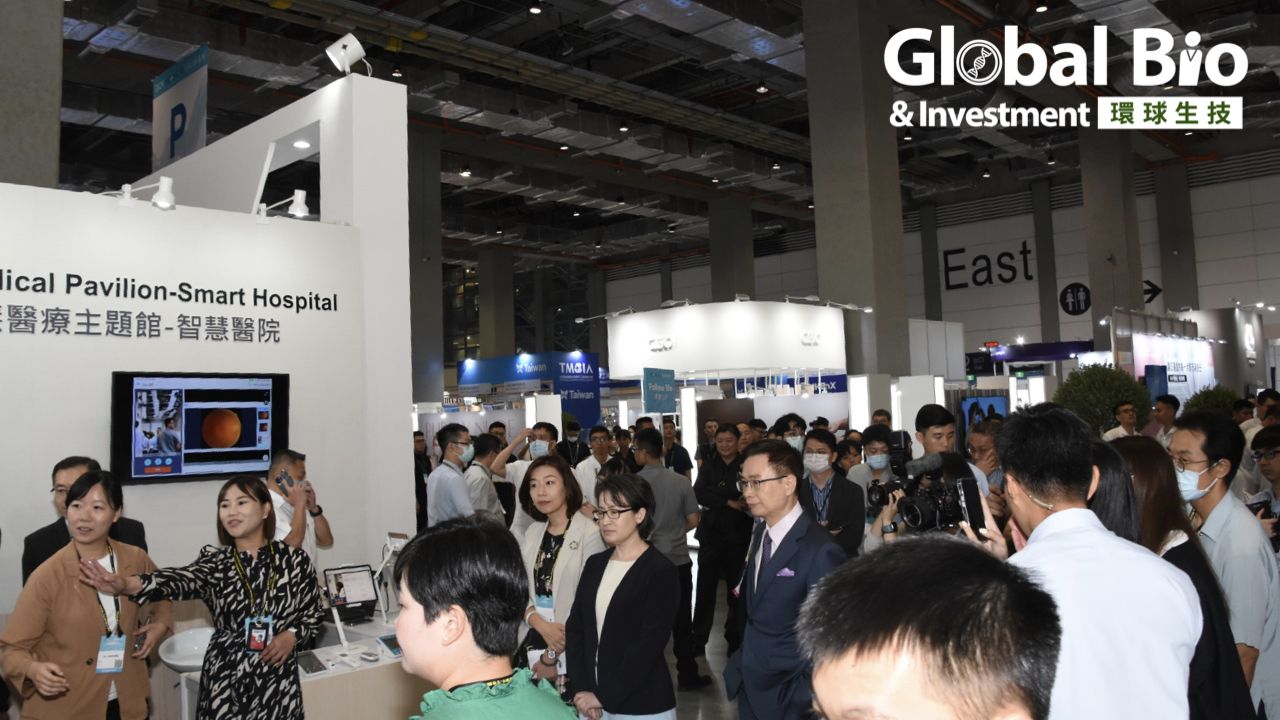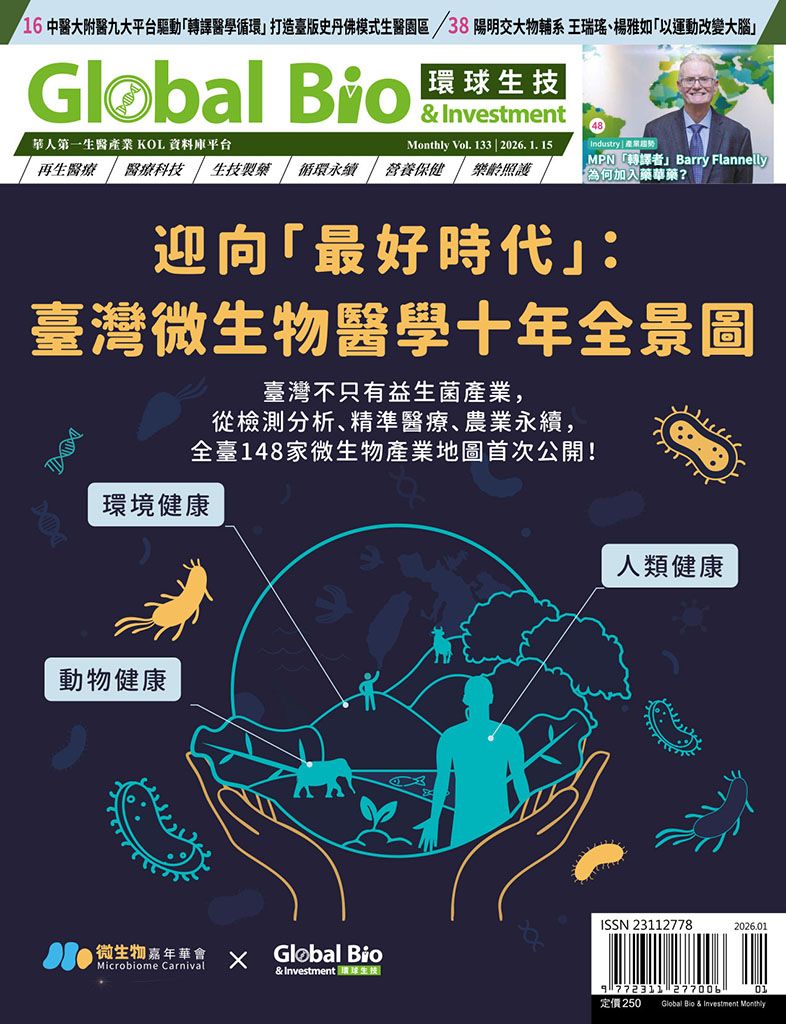Medical Taiwan 2024, a three-day exhibition, wrapped up on June 21. This year’s exhibition is said to be the largest in its history, attracting over 8,000 visitors over the three-day exhibition, a 10% increase from 2023, and with nearly 1,000 international visitors, a 3% growth from last year.
TAITRA, the organizer, stated that the top five countries among international visitors were Japan, Thailand, Korea, Vietnam, and Malaysia.
In addition, two major matchmaking events were held during this exhibition—Sourcing Taiwan Smart Medical Device Meetings and Medical Taiwan 2024 Overseas Channel Procurement Meetings. A total of 33 prominent buyers from 14 countries had over 200 meetings with almost 100 Taiwanese suppliers.
Highlights of the exhibition included the themed pavilion organized by the Taiwan Medical and Biotech Industry Association (TMBIA) and the Taiwan Federation of Medical Devices Commercial Associations (TFMDCA), showcasing innovative smart medical applications. Furthermore, the M-Novator Startups Zone featuring Taiwanese and international startups and the Japan Pavilion organized by the Japan-Taiwan Exchange Association demonstrated the capabilities of new startups and internationalization efforts.
Smart Medical Pavilion: Eye-catching In-hospital and Remote Medical Applications
The TMBIA-organized Smart Medical Pavilion featured scenarios like surgery rooms, ICUs, smart hospitals, and smart wards to showcase the latest products from various medical companies, such as Pacific Hospital Supply Co. and Wellell Inc.
In the surgery room scenario, various medical consumables were displayed, including surgical dressings, sterilization packaging materials, and surgical drapes, as well as many high-end medical products, such as surgical anesthesia systems, surgical navigation systems, and robotic stereotactic assistance. In smart wards, original products like electric hospital beds, air mattresses, physiological monitoring systems, dialysis machines, and closed suction systems were displayed, highlighting Taiwan's capabilities in technological integration and innovation.
Other than in-hospital applications, several devices for telemedicine were showcased, such as video transmission boxes, mobile telemedicine toolboxes, otoscopes and ophthalmoscopes, handheld wireless ultrasound, and home care equipment. The exhibit also demonstrated Taiwan's competitiveness in telemedicine technology.
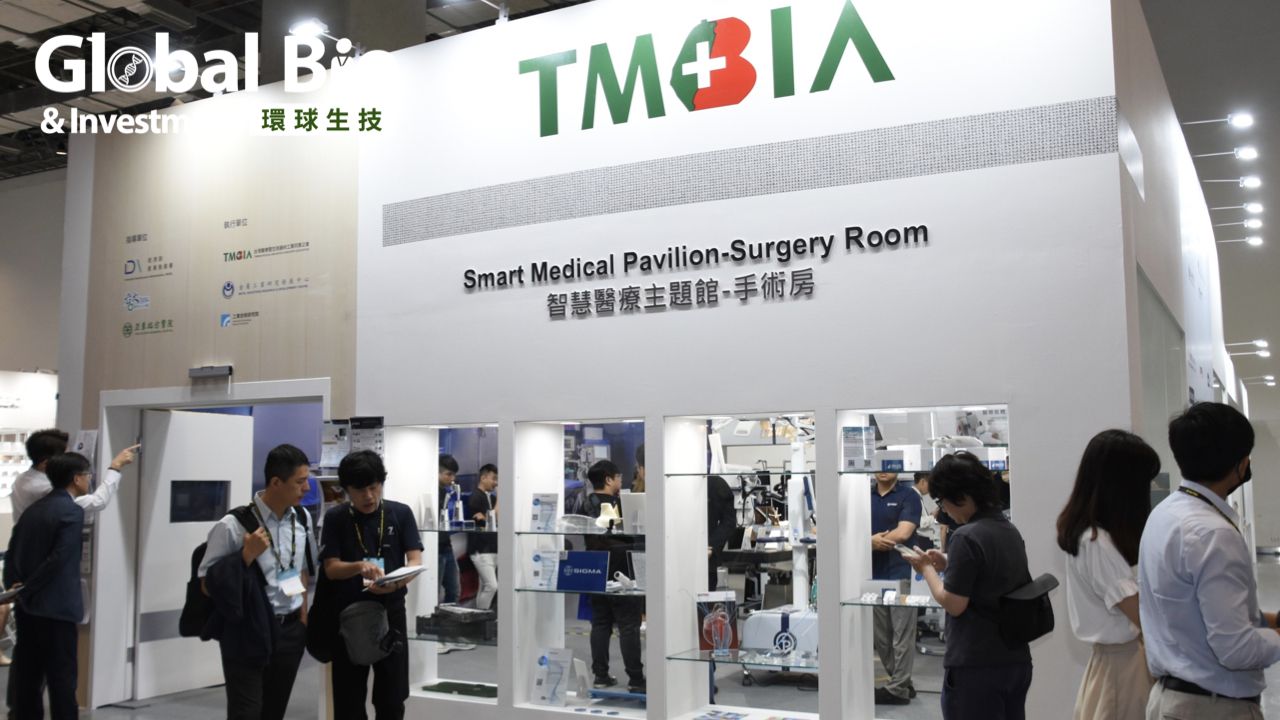
n the surgery room scenario, various medical consumables were displayed, including surgical dressings, sterilization packaging materials, and surgical drapes, as well as many high-end medical products. (Photo by Alice Peng)
Telemedicine and Smart Medical Devices Pavilion: Electronics Manufacturers Invest in Medical Innovation and Showcase Smart Health Commercialization Achievements
The Telemedicine and Smart Medical Devices Pavilion, organized by the TFMDCA, brought together advanced medical equipment and realized AI smart wards.The pavilion presented various scenarios, including Joson-Care’s ICU Electric Hospital Bed, Advantech's Compact Medication Cart, Uneo Inc.’s UEXT (bed exit alarm system), Wistron Medical Technology’s BestShape VS, and Emperor’s Lying-flat Scale.
Netown Corporation showcased several muscle strength assessment smart systems for sarcopenia and frailty. Their smart exercise equipment, such as smart bikes and treadmills, allows users to engage in professional rehabilitation training at home.
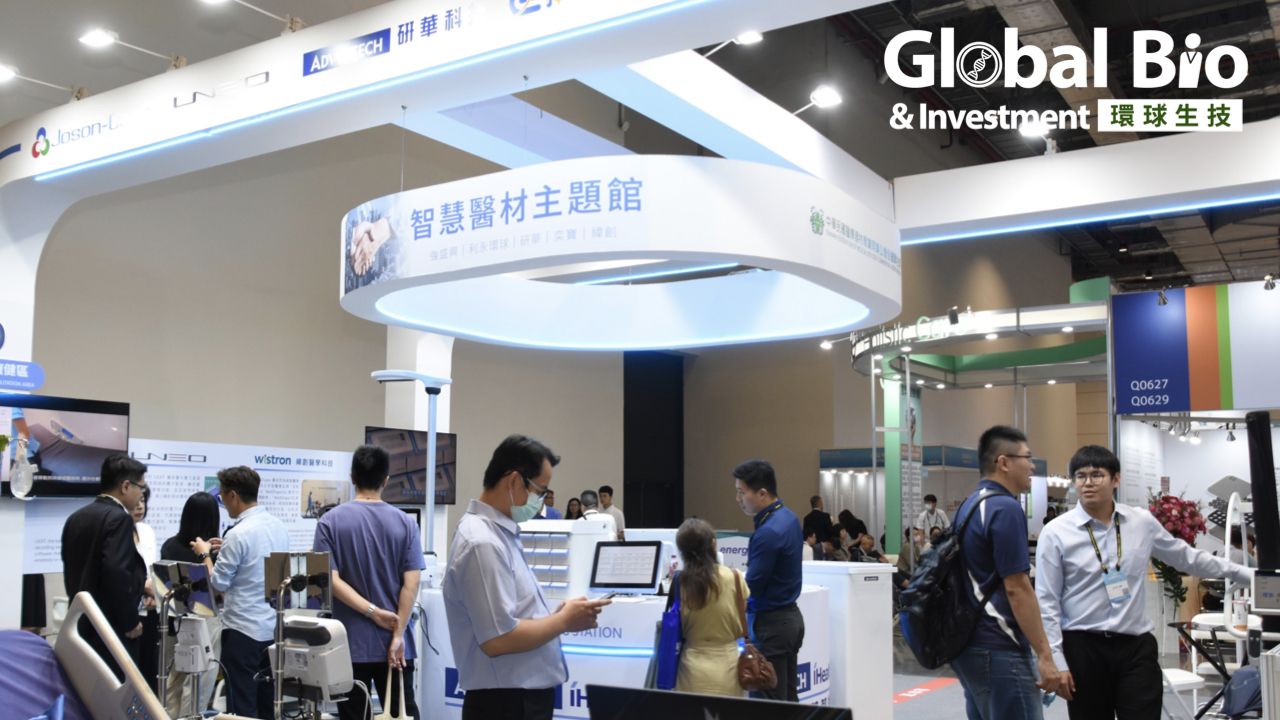
The Telemedicine and Smart Medical Devices Pavilion presented various scenarios of smart health commercialization achievements. (Photo by Chih-Yueh (Lisa) Wu)
Digital Health Future Pavilion: Solutions for Medical Care and One Health
The Digital Health Future Pavilion brought together several companies, including Huijia Health Life Technology, Syncvision Technology, Penpeer, H.P.B. Hi-tech, D Insight Medical Solutions, Alleypin Interactive, and Decentralized Biotechnology Intelligence. It showcased solutions for medical care and one health developed based on digital technology.
For instance, Huijia Health Life Technology presented its high-sensitivity, high-precision physiological sensors developed with the non-invasive fiber optic physiological monitoring technology (nFOPT). Founder Shu-Chen Yang shared that these innovative applications of nFOPT include monitoring the vital signs of firefighters, monitoring fall prevention of older adults, and evaluating rehabilitation outcomes.
Decentralized Biotechnology Intelligence exhibited its AI insole sensors, which utilize AIoT technology and micro-sensing devices to analyze data such as gait, foot pressure, center of gravity, cadence, and stride length.
M-Novator Startups Zone: 11 Companies from 5 Countries Unveil Innovative Medical Technologies
The M-novator Startups Zone featured 11 startups specialized in medical care from Japan, Singapore, India, Thailand, and Taiwan. These companies included Pharmasaga, developing new drugs for diabetes; Taiwan Universe Biomedicine, creating flu vaccines; JCiplus Technology Corp., launching smart wearable devices; MtM+ Technology Corporation, specializing in smart sleep technology; Phansco Co., Ltd., utilizing Raman spectroscopy chips for food safety testing; and BioBunBan, launching a mass production system for plant stem cell.
In addition, other startups were DeepEyeVision Inc. from Japan, which developed AI deep learning tools for ophthalmologists; Neodocs from India, creating real-time reagents for kidney health, for older adults, and prenatal care; iFlow Tech from Thailand, using innovative AI/ML algorithms to develop neurogaming for improving ADHD and depression; Bederly, also from Thailand, exhibiting a smart electric turning care bed for home care; and EyRIS from Singapore, launching a remote ophthalmology analysis system for diabetic retinopathy, glaucoma, and age-related macular degeneration.
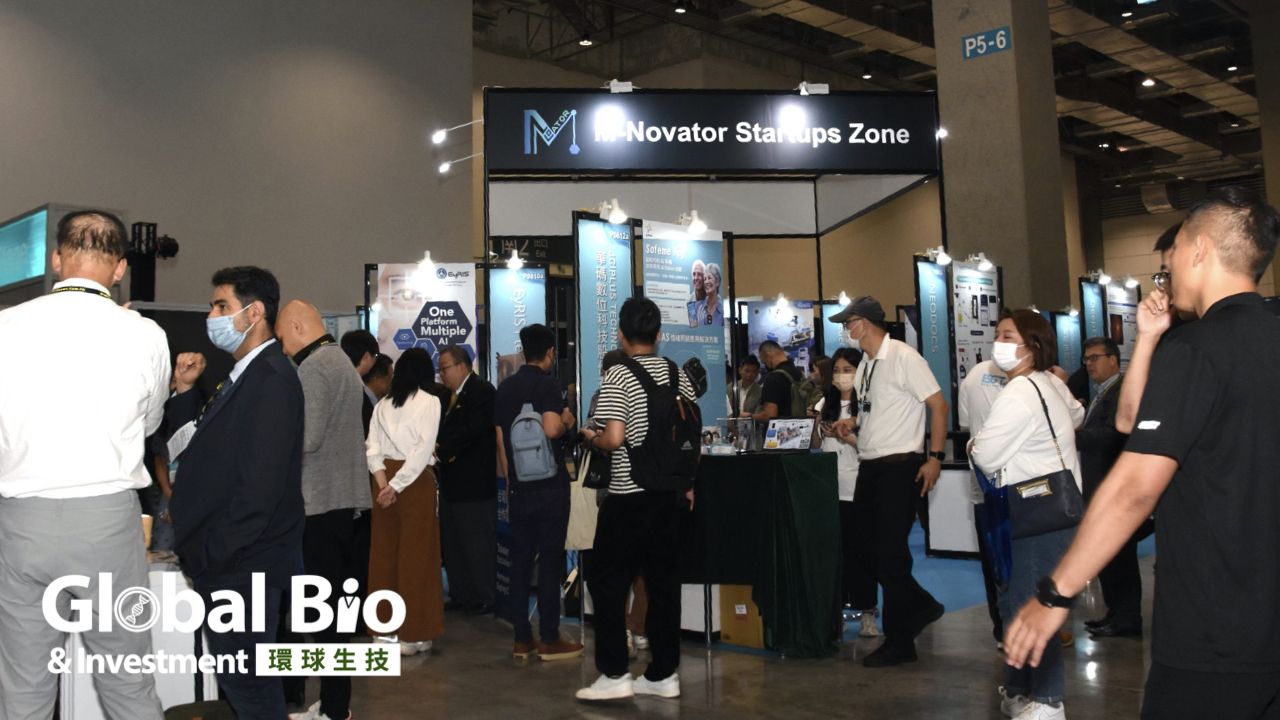
The M-novator Startups Zone featured 11 startups specialized in medical care from 5 areas. (Photo by Lin-Ai (Lydia) Li)
Japan-Taiwan Exchange Association and TAMA Association Lead 13 Long-Established Companies and Startups to Taiwan to Seek Distribution Partners
Led by the Japan-Taiwan Exchange Association and the Technology Advanced Metropolitan Area (TAMA) Association, more than ten Japanese developers of medical devices and all-age care products made their first visit to Taiwan to look for agents and distribution partners.
This year, the Japan-Taiwan Exchange Association brought together eight companies to exhibit their products, including Expert Material Laboratories' 3D-printed chemical-free washable medical resin; Spine Chronicle Japan's screw vertebroplasty medical materials; PLIMES' wearable electronic stethoscope for swallowing function; Suzuken Co., Ltd.'s peracetic acid disinfectant test reagent kit; Hakuzo Medical's oral care kit with a penlight; WINCESS' soft finger splint assistive device; ITO Physiotherapy & Rehabilitation's electrotherapy/ultrasound combination therapy machine; and ATELIER-K's elastic auxiliary work vest.
The TAMA Association brought five long-established Japanese companies to Taiwan to seek sales partners, including Sayama Mold Manufacturing Co., a precision mold design and manufacturing company; Innophys, a developer of exoskeleton robots; Sanko Seisakusho Co., a developer of portable phlegm suction machines and other suction devices; Cosmotech, a developer of special functional films; and Soken Medical, a developer of electromagnetic therapy for sports medicine.
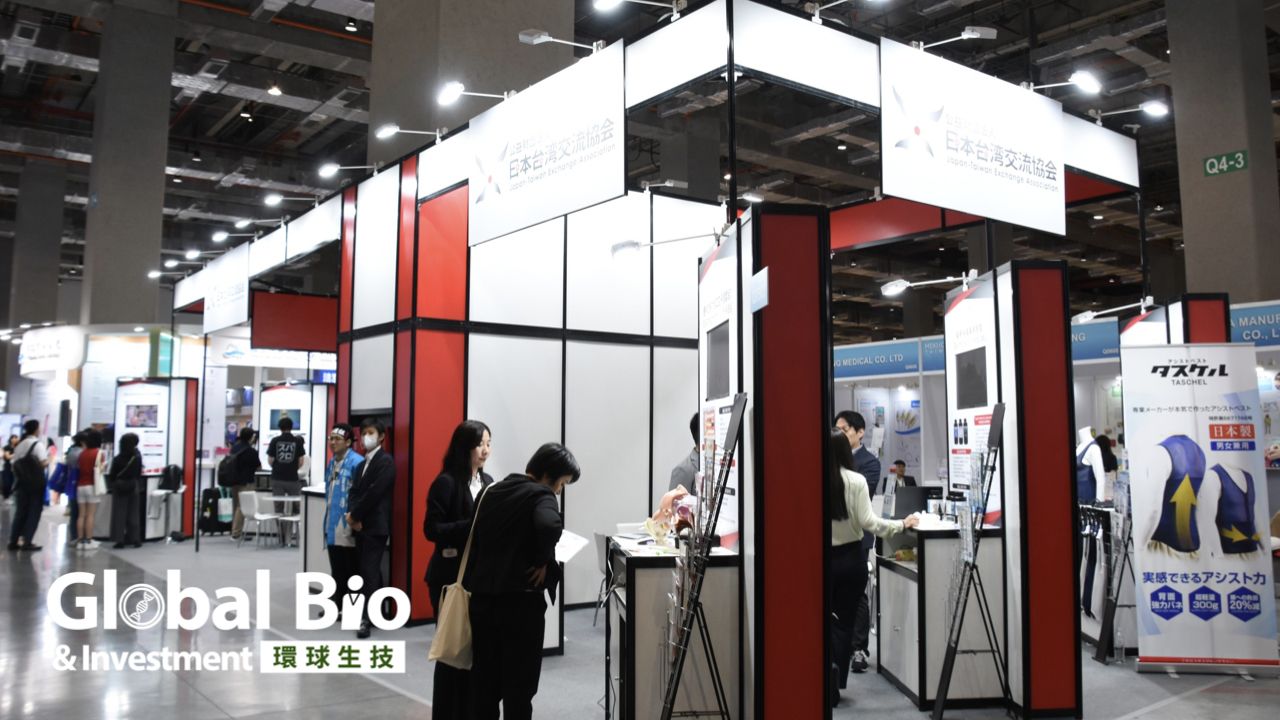
Led by the Japan-Taiwan Exchange Association and the Technology Advanced Metropolitan Area (TAMA) Association, more than ten Japanese developers of medical devices and all-age care products made their first visit to Taiwan to look for agents and distribution partners.(Photo by Peian Wu)
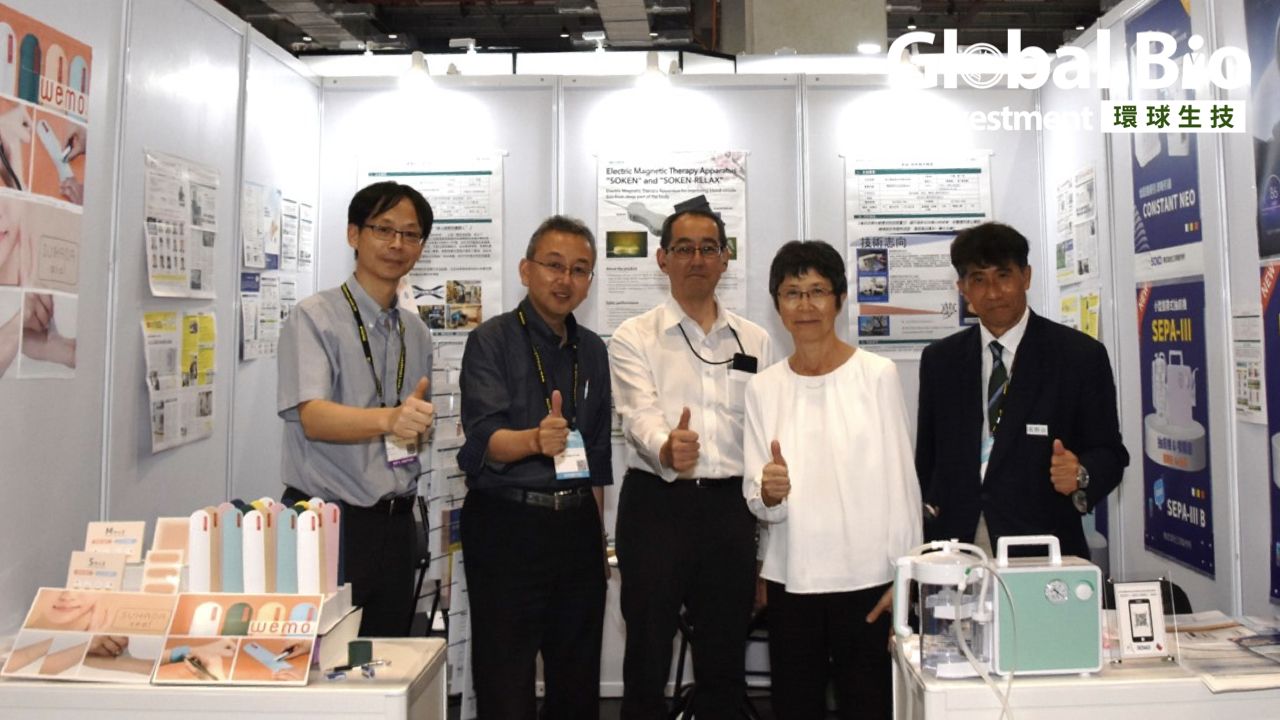
The TAMA Association brought five long-established Japanese companies to Taiwan to seek sales partners. (Photo by Peian Wu)
(Reporters/Lisa Wu, Alice Peng, Lydia Li, Peian Wu)

